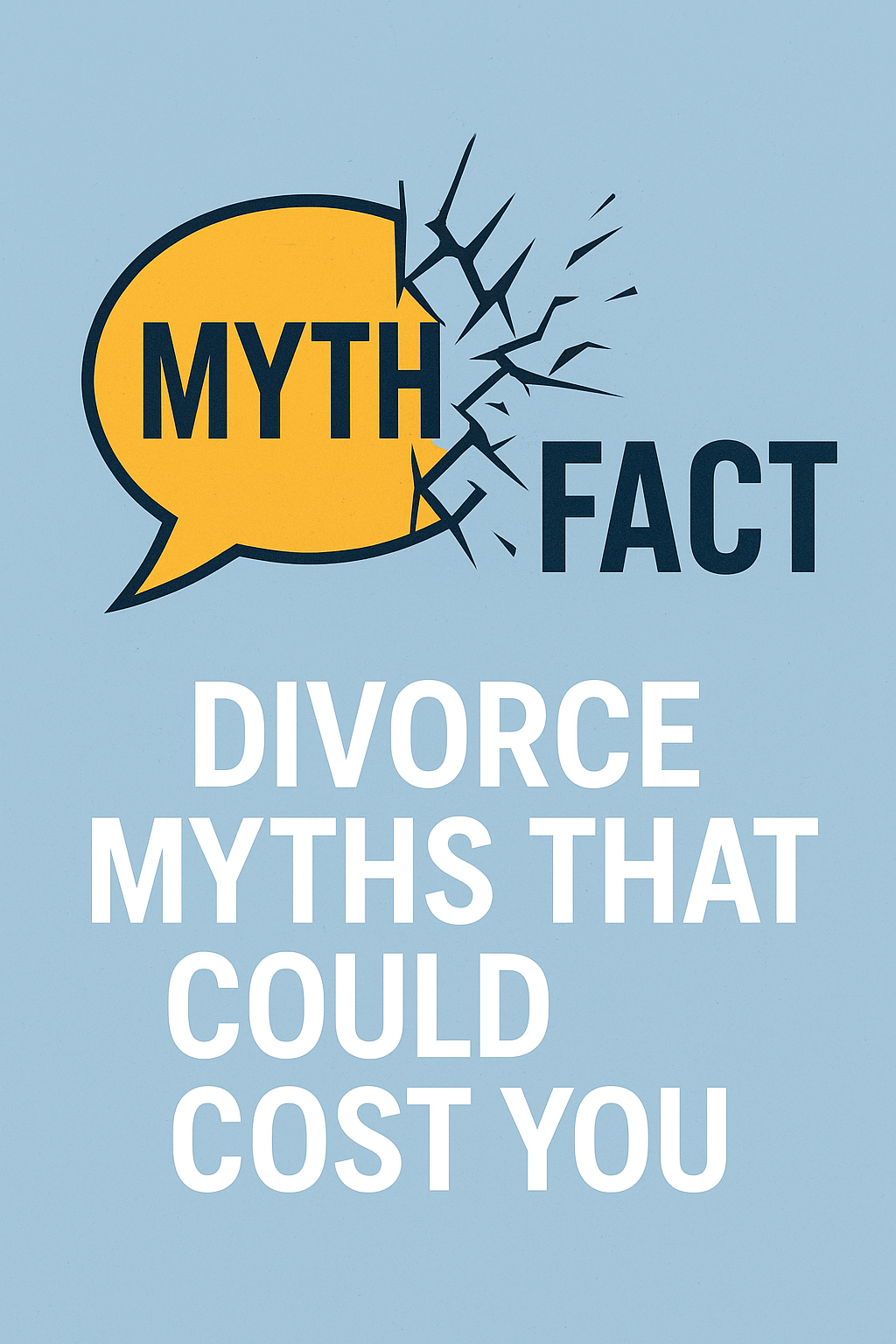Divorce Myths that Could Cost You: What New York Families Need to Know
When you’re facing divorce, it’s easy to get caught up in the stories you hear from friends, family, or online forums. Unfortunately, many of these “facts” are myths — and believing them can hurt your case. Below, we break down some of the most common misconceptions about divorce in New York, so you can move forward with clarity and confidence.
1. “Mothers always get custody.”
Not true. Custody decisions are based on the best interests of the child, not gender. Courts look at factors like each parent’s role in caregiving, stability, and ability to meet the child’s needs. Fathers have the same rights as mothers.
2. “Property is always split 50/50.”
New York follows equitable distribution, which means property is divided fairly, not equally. The court considers factors such as each spouse’s income, contributions during the marriage, and future financial needs.
3. “If I move out, I lose my rights to the home.”
Moving out does not mean you give up ownership of your home or other marital property. However, it can affect temporary custody arrangements or financial obligations, so it’s a step to take only with legal guidance.
4. “Alimony lasts forever.”
Spousal support (also called maintenance) is usually temporary and based on specific factors, such as income differences and length of the marriage. Permanent support is rare.
5. “If my spouse cheated, I’ll get more in the divorce.”
New York is a no-fault divorce state, meaning misconduct like adultery typically doesn’t affect property division or support. The focus is on finances and the best interests of the children, not punishing bad behavior.
6. “We can’t divorce if we agree on everything without going to court.”
Actually, you can. This is called an uncontested divorce, and it’s often quicker, less expensive, and less stressful than a contested case. A lawyer can help draft the paperwork and ensure the agreement is legally binding.
7. “One lawyer can represent both of us.”
By law and ethics rules, one attorney cannot represent both spouses in a divorce. Each party should have their own legal counsel to ensure their rights and interests are fully protected.
Final Thoughts
Divorce is challenging, but falling for myths can make it even harder. Knowing the facts about custody, property division, and support helps you make better decisions for your future.
If you have questions about divorce in New York, the Schreck Law Group is here to provide clear, experienced guidance. Contact us today to schedule a consultation.
